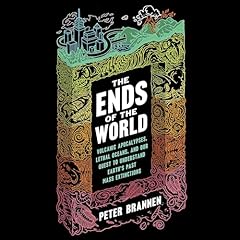
Great Barrier Reef
Travel Australia
No se pudo agregar al carrito
Add to Cart failed.
Error al Agregar a Lista de Deseos.
Error al eliminar de la lista de deseos.
Error al añadir a tu biblioteca
Error al seguir el podcast
Error al dejar de seguir el podcast
Compra ahora por $5.34
-
Narrado por:
-
James Conlan
-
De:
-
iMinds
Learn about the history of the Great Barrier Reef in Australia with iMinds Travel's insightful fast knowledge series. Imagine a sea of sparkling, clear blue water speckled with multicoloured coral. Imagine crabs, turtles, dugongs, sea snakes and hundreds of species of fish swimming among this coral. Now imagine this scene stretching out for more than two thousand kilometres, or 1240 miles! This is the Great Barrier Reef, which is so expansive it is said that if you dived along it every day of your life you would not see it all. Situated along the northeast coastline of Australia, in the Pacific Ocean, the reef stretches from southern Queensland to just below Papua New Guinea.
Often regarded as one of the seven natural wonders of the world, the Great Barrier Reef is a dazzling sight. But it is more than that. Made up of almost 3000 individual coral reefs, the area houses a wealth of marine life. Indeed, it is the most complex coral reef system in the world and one of the most dynamic ecosystems, of any kind, that exists on our planet. In 1981 it was deemed a UNESCO World Heritage Area – and remains the largest to gain this status.
©2009 iMinds Pty Ltd (P)2015 Audible, Inc.Los oyentes también disfrutaron:




















I like these small books.
Se ha producido un error. Vuelve a intentarlo dentro de unos minutos.

